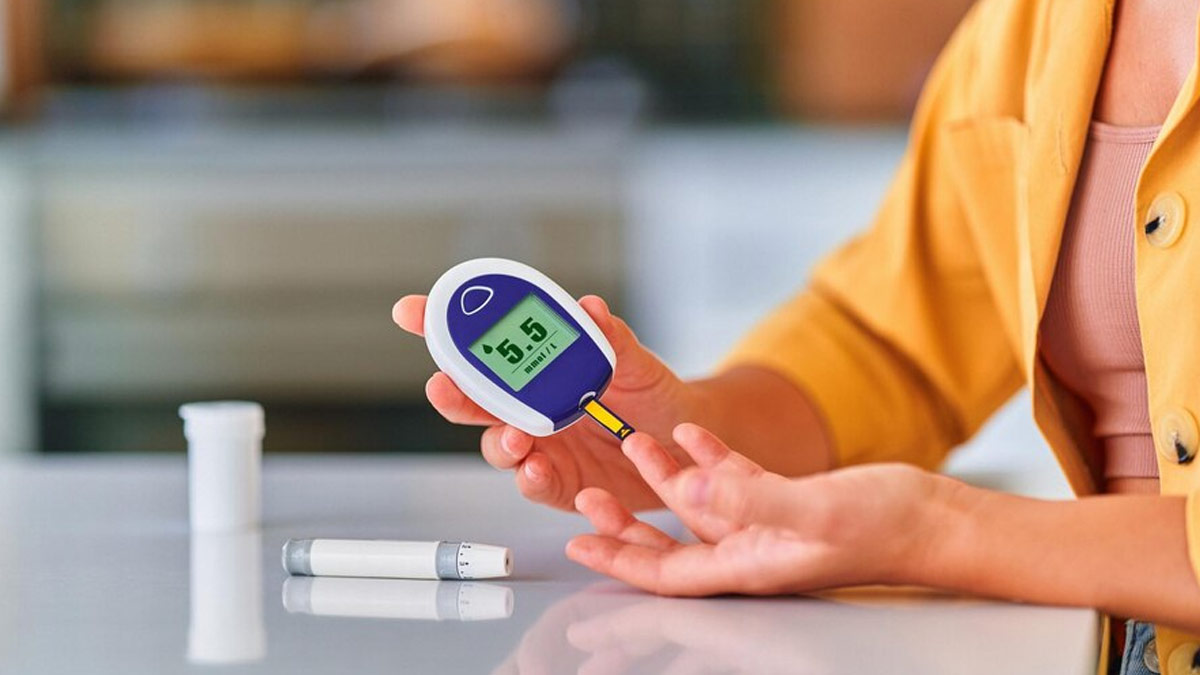
Diabetes is a metabolic disorder that affects our body’s ability to digest food into energy while dispelling the waste out of the body. The consequence of this long-lasting health condition is that your body’s insulin production and effectiveness get stumped, leading to imbalances in your blood sugar levels.
Table of Content:-
According to the National Health Service, untreated diabetes can lead to blindness, kidney failure, lower limb amputations and many other complications. However, the most concerning fact about untreated diabetes is that it may also lead to many types of cancer, including pancreatic, colorectal, breast, and liver cancers, according to the American Diabetes Association.
To understand why this happens and how you can prevent the risk of cancer due to diabetes, the team of OnlyMyHealth spoke to Dr Sojan George K, Associate Professor and Senior Consultant, Gastroenterology, Amala Institute of Medical Sciences, Thrissur, Kerala.

Diabetes Causes Terminal Cancer
Dr George K said, "Untreated diabetes, especially when poorly managed, can create a pro-inflammatory and pro-oxidative environment that may promote the development of cancer cells.”
According to a study published in MDPI’s journal ‘Cancers,’ some possible mechanisms by which diabetes causes cancer are:
- Insulin Resistance and Hyperinsulinemia: In diabetes, cells may become resistant to the effects of insulin, leading to elevated levels of insulin in the bloodstream (hyperinsulinemia). Insulin has growth-promoting properties, and persistently high levels may encourage the proliferation of cells, including cancer cells.
- Hyperglycemia: Elevated blood glucose levels (hyperglycemia) can fuel the growth of cancer cells. High glucose levels provide an ample energy source for rapidly dividing cells, potentially aiding the progression of cancer.
- Inflammation: Diabetes is associated with chronic low-grade inflammation. Inflammation can create an environment that supports cancer development and progression. Inflammatory molecules and signalling pathways may contribute to the initiation and growth of cancer cells.
- Oxidative Stress: Diabetes can lead to increased oxidative stress, causing cellular damage. This oxidative stress is linked to the development of cancer and other chronic diseases.
"If you have diabetes and notice loss of appetite, weight loss, and loss of control of blood sugars, these could be early warning symptoms," cautioned Dr George K.
Also Read: Untreated NAFLD Can Increase Your Risk Of Cancer: Here's How You Can Prevent It

Here's To Prevent Cancer Due To Diabetes
"If you are dealing with diabetes, here are some measures that can help you to reduce the risk of cancer," said Dr George K as he listed:
- Regular Monitoring and Check-ups: Routine screenings are essential to help you detect and manage complications of diabetes early.
- Maintaining a Healthy Lifestyle: Adopt a balanced diet rich in vegetables and whole grains, and engage in regular physical activity.
- Weight Management: Achieve and maintain a healthy weight if you have diabetes, as excess body weight is a risk factor for both conditions and certain cancers.
- Blood Sugar Control: Proper management of blood glucose levels is crucial to reduce the risk of cancer. This involves regular monitoring, medication adherence, and lifestyle adjustments.
- Consulting Healthcare Professionals: Regular communication with healthcare providers ensures that you receive appropriate medical guidance, personalised treatment plans, and timely interventions to manage diabetes.
Dr George K concluded that numerous factors influence cancer risk and if you have diabetes, that does not mean that you will develop cancer. However, if you have diabetes, make sure you consult a doctor as soon as you notice any of the cancer-associated symptoms. This can help you reduce the risk of further diabetes complications by developing a comprehensive and individualised plan for managing your health.
Also watch this video
How we keep this article up to date:
We work with experts and keep a close eye on the latest in health and wellness. Whenever there is a new research or helpful information, we update our articles with accurate and useful advice.
Current Version